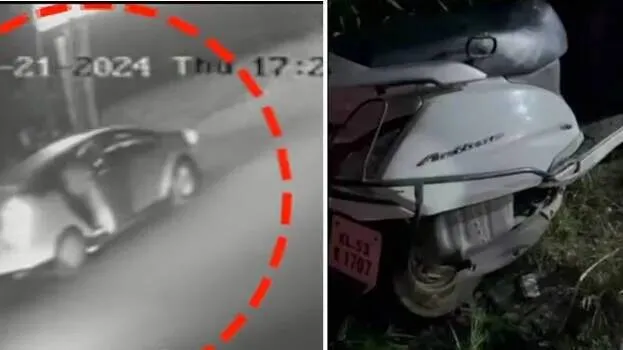
There has been a storm in a teacup of recrimination since. It is also the end of the road — for now — of big thinking on climate. In the future being planned for us, it can be an agenda item but not a driving priority.
On that, at least, Fine Gael, Fianna Fáil, and Sinn Féin are united. The EU Climate Change Service Copernicus warned that October 2024 was the second-warmest October globally. This is now “virtually certain” to be the hottest year to date.
Global warming will likely be more than 1.55 degrees above the 1850-1900 average, the period before the industrial-scale burning of fossil fuels. This is amplified in the enclosed Mediterranean, where sea surface temperatures of 30 degrees was recorded in Mallorca on July 30th.
Out of the warming water came the deluge of rain that killed more than 200 people around Valencia . The evidence is scientific , indisputable, and somehow still ignored. Putting the Greens back in the political playpen was a rare victory for the Department of Public Expenditure, and a decisive political punt by the two big parties in Government.
The proposals were germinated in six taskforces, over two years, with departments across the board and ministerial involvement. They were institutionally loathed by the Department of Finance and the Department of Public Expenditure. Establishing the Infrastructure, Climate and Nature Fund met resistance within Government.
One of the toughest bureaucratic fights in the life of the Government involved arriving at agreement on its terms and conditions. The fund would give multiannual funding, outside the annual estimates process, to specific climate initiatives, which otherwise would not be a priority for sponsoring departments. This included €1.
3 billion to retrofit public buildings including schools and hospitals. Neither department wanted to prioritise retrofitting existing stock to reduce carbon emissions over delivering new buildings and additional capacity. Given the choice between saving the planet or cutting ribbons, you might assume it’s a no-brainer.
But the patronage of projects is the lifeblood of electoral politics. And as for global warming — sure, we all must die of something eventually. There was an allocation of €650 million for nature supports, which would have benefited smaller farmers.
District heating was allocated €250 million. Now, however, it is no more. Instead, months from now, under a new government but the same climate branding, this funding can be distributed tactically, on a business-as-usual basis.
Time will be lost and so will bigger impacts. By agreeing on what government investment would be, the private sector would have certainty of what was coming. The Sustainable Energy Authority of Ireland (SEAI) said this week that “even with a massively scaled effort for technology deployment across all sectors, it is now likely too late to meet our legally binding 2030 obligation”.
The shame is we are beginning to gather momentum. Greenhouse gas emissions in Ireland reduced by 6.7 per cent in 2023, to the lowest in over three decades.
We are successfully reducing emissions outside of recession, and if behind, we are at last on the way. It was not meant to be like this. On budget day, Minister for Public Expenditure Paschal Donohoe promised, with regard to the Infrastructure, Climate, and Nature Fund, that “we will shortly set out how this money will be invested to provide a clear and consistent signal to those who wish to invest in these ambitions”.
Delivery in scale was to be from 2026. The International Energy Agency believes that meeting international climate targets is possible, but only with a tripling of renewables deployment and a doubling of energy efficiency. Precious time will now be lost and the advantages for our economy that will come with renewable investment have drifted further out of reach.
[ The Irish Times view on the floods in Spain: Climate change in action Opens in new window ] Also dumped this week was Moving Together: A Strategic Approach to the Improved Efficiency of the Transport System in Ireland. A draft version was published in March and is intended to help deliver the 50 per cent emissions reduction target for the transport sector by 2030. It, too, has a long history but will go nowhere for now.
It would have improved public transport, tackled congestion, and built on the successful intervention on Dublin’s quays, as well as supporting electric vehicles. As Taoiseach Simon Harris said, cryptically, he is anti-carbon, not anti-car. At some point in the election campaign, the issues that really matter to voters will come to the fore.
Survival of the planet might be one and seizing the advantage for our economy might be another. But that’s up to us..














